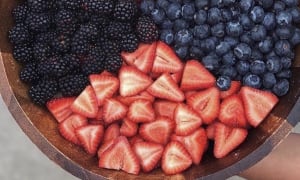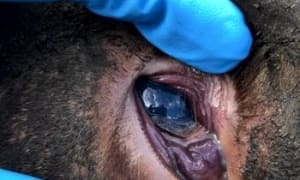RESPECTED veterinarian and agricultural research manager, Dr Scott Williams, will draw on insights and experience, and a commitment to innovation, built over 30 years in agriculture to his new role as chair of the Sheep Sustainability Framework's (SSF) Sustainability Steering Group (SSG).
Based in Kingston, near Ballarat, in Victoria's Central Highlands, Dr Williams is well known in the farm sector through his professional consulting business which services the agriculture and animal health industries across Australia and the world, working with research and development corporations, industry peak bodies, government agencies and the education sector.
With degrees in Science and Veterinary Science, and a Master of Veterinary Studies, Dr Williams has been a large–animal vet and technical officer with Coopers Animal Health, and recently helped to facilitate the development of Wool 2030 for Australian Wool Innovation (AWI).
Dr Williams said he was honoured to have the opportunity to collaborate with fellow members of the SSG and value chain stakeholders to further develop and put into effect what is the world's first sustainability framework for the sheep and wool industries.
"I've had a strong interest in sustainability for a long time and I firmly believe the SSF is an initiative that is critical to the future resilience and prosperity of Australian sheep and wool businesses," Dr Williams said.
Latest Stories
He said the evolution of sheep and wool products as luxury items was particularly driving the need to ensure production systems met community expectations.
"Twenty or 30 years ago, farm consultants were strongly emphasising the need to minimise cost of production per kilo of product," Dr Williams said.
"That's still important, but price factors now come much more into play.
"You can't sustain a 'luxury good' proposition if you don't meet the consumer's expectations for an ethical production system."
Dr Williams managed research and development at AWI to develop alternatives to mulesing in the early 2000s and said it was there he came to realise the impact sustainability issues could have on an industry.
"Since then, I've assisted a range of industries to develop strategic plans, including long–term visions for wine and wool, and sustainability has emerged as one of the key considerations in all of them."
Dr Williams said he was determined to help industry communicate its commitment to animal welfare, the environment and exceptional quality.
"For a start, we need to talk more about the fact that wool is natural, renewable, recyclable and biodegradable," he said.
"We are so much more aware of the problem of waste plastics and microplastics in the world – and textiles made from oil–derived polymers such as polyester are plastics."
He is also urging sheep and wool producers to share their stories.
"For example, look at Victorian prime lamb producers Tim and Georgie Leeming, from Paradoo Prime, who are removing adverse animal husbandry practices and have led the way in introducing human–grade pain relief on their property," he said.
"Similarly, wool, prime lamb and beef cattle producers Mark Wootton and Eve Kantor from Jigsaw Farms in western Victoria are committed to sharing the good news story of exceptional animal welfare standards and carbon neutral farming.
"These are the types of stories we should be telling because consumers increasingly expect us to offer products from a value chain that delivers a net positive long–term impact on the people, the animals and the environment we employ to bring those products to market."













